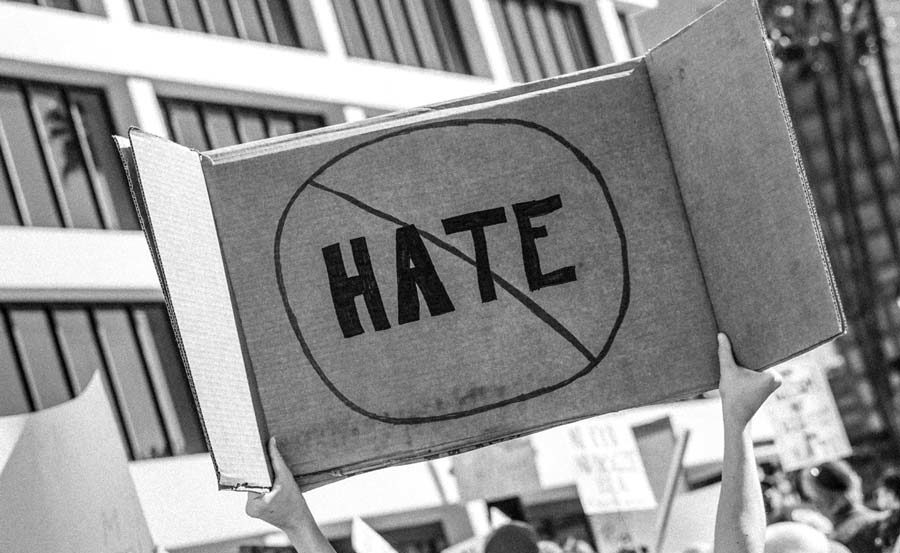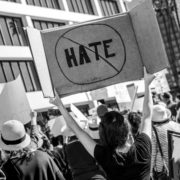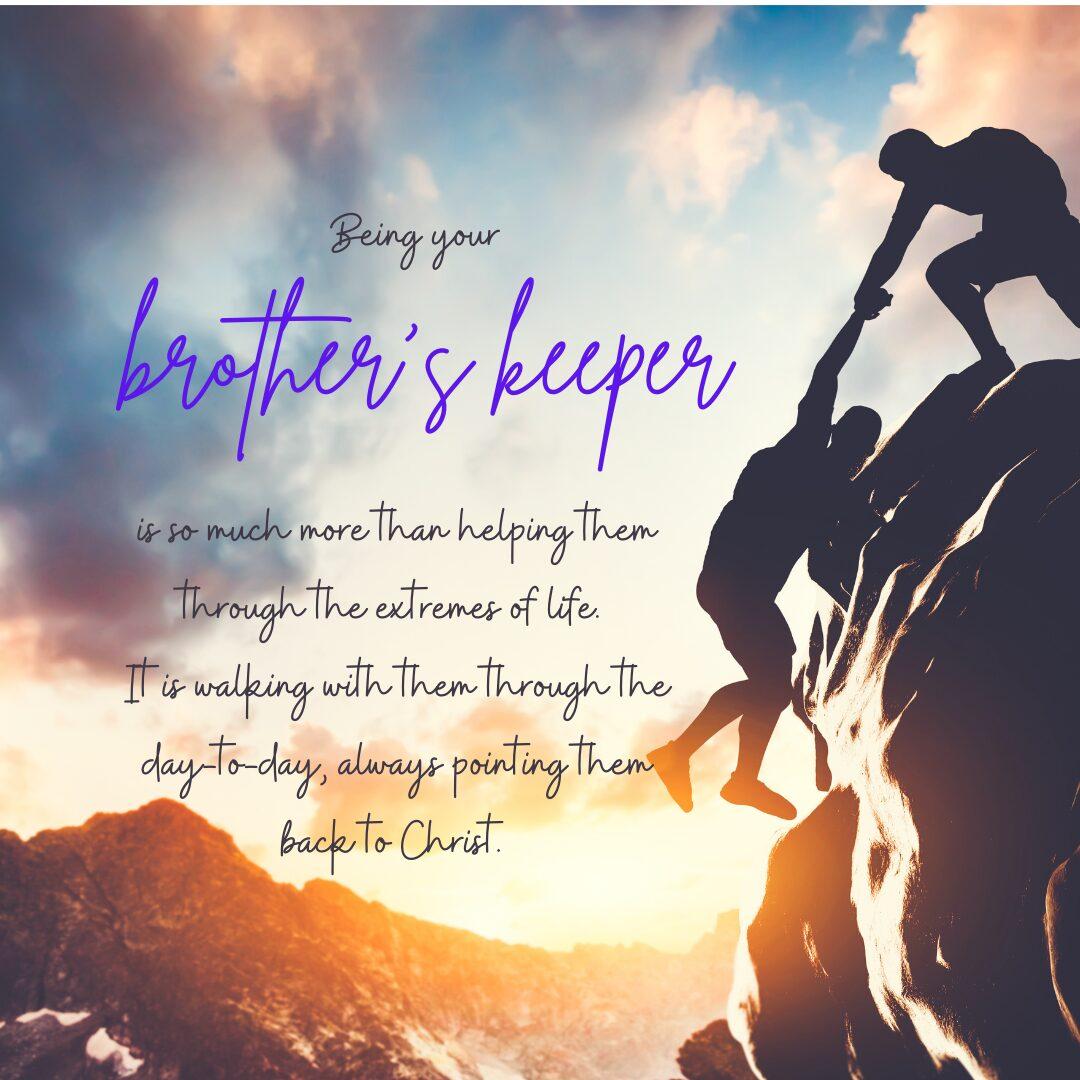
“I have witnessed with great concern the disturbing social unrest in your nation in these past days, following the tragic death of Mr. George Floyd. We cannot tolerate or turn a blind eye to racism and exclusion in any form and yet claim to defend the sacredness of every human life. At the same time, we have to recognize that ‘the violence of recent nights is self-destructive and self-defeating. Nothing is gained by violence and so much is lost’.” – Pope Francis, June 3, 2020
“But what we know and what we have seen — is that America can change. That is the true genius of this nation. What we have already achieved gives us hope — the audacity to hope — for what we can and must achieve tomorrow.” – Former President Barack Obama
Ever, a 5-year-old, joined her mom and dad at rally on Sunday, June 7. She was joined by her uncle, his partner, and another friend; yet to her, all are uncles whom she gives hugs to, including an auntie, a white woman sister. The three who joined her family are young whites concerned about #BlackLivesMatter.
“Grandma I wanted to say to the police: Take care of people, don’t kill them.” She watched the news about George Floyd and was restless the day after, that we talked about what happened at Sunday’s rally.
She held a poster: “Respect the Existence or Expect Resistance.”
“My mom made that, Grandma, what does it mean?” she asked. “It means if I am not listened to and respected for who I am, I can fight back.”
Moments later, when one of her grandparents was half listening, she said, “Lolo, you are talking over me.” I was surprised by her statement, but both of us paused and listened.
“You know I love you so much,” I told her. “Grandma, I love everyone in my family,” she responded.
Her mom and her dad have an extended circle, knitted together by her dad’s multicultural social skills that easily make everyone feel as if family, while her mom’s openness to all cultures are friends who are part of their adventures.
On Instagram, @coriput wrote on June 7, “Today felt powerful. We’re affecting change faster than I ever thought possible. I know I will never know and fully understand the plight of my black brothers and sisters. But they are my family and always, through thick and thin, I am here to fight as hard as I can to make sure that they and we never have to feel the pain of another life lost unjustly.”
Unrequited revolutionary love
Bishop Frank Nubuasah of Botswana described George Floyd as perhaps teaching the coronavirus how to infect people.
“One of the things I cherish most about you was your very infectious smile. It was as if the coronavirus learnt from you how to infect people. Your heart was very big and accommodated people. It was always, okay with you to reach out to one more person. Yes, you would run a mile for anyone. Run you did for me on a number of occasions, but that is a story I will tell some other time. My heart is heavy as I sit in my prayer corner to write you this missive knowing well that others will read it but you will not. We humans through a representative of ours made sure that your eyes were closed and would not open again. That is however not true, your eyes will remain forever seeing the fire you started at death. The revolution that your sacrificial death inspired and the new movements and alliances against racism, classism, and discrimination are growing. You lit a fire that is burning for peace and change. So, my friend, when you hear the chant, ‘yes, we can’ know that we are doing it in your name and for you. Gone, but very much here! On the mother continent we would call you, the living dead,” Nubuasah said as reported by Vatican News on June 9.
Eight minutes and forty-six seconds — that is how long Derek Chauvin, a uniformed policeman in blue, had knelt on the neck of George Floyd, a 46-year-old black man who allegedly paid cigarettes with a counterfeit $20 bill. A convenience store staffer called 911 and police responded.
Chauvin had knelt on Floyd’s neck, stopping his ability to breathe. Floyd kept saying 16 times: “I can’t breathe,” the Seattle Times described on June 9, a statement from “an outsized man who dreamed equally big, unswayed by the setbacks of his life.”
This was slow murder by suffocation using the force of kneeling down on someone’s neck.
Racism has always equaled death, lynchings using a rope, now death using a knee, and before that, bullets. Much like Joseph Santos Ileto who was murdered by a self-described white supremacist, Buford Furrow, Jr., who mistook him for a Latino and shot him on the back not once, not twice, not thrice, but nine times. The family did not respond with vengeance, but instead, they went to different schools to share the story of their brother and to teach high school students about hate crimes’ prevention.
Virulence of hatred from white supremacists has had such intensity leading to loss of lives yet, blacks still rise, with optimism and hope that America can change. It is such a revolutionary love that blacks do not seek vengeance but over and over again, offer white America an opportunity to listen and to really change for four centuries now.
“Seventeen minutes after the first squad car arrived at the scene, Mr. Floyd was unconscious and pinned beneath three police officers, showing no signs of life,” a report said. The officers even misled the firefighters after checking with them as to the location and it took another five minutes to give George Floyd first aid. By that time, he had died.
We often wondered when will white folks un numb themselves from being complicit with racism?
“What would cross your mind,” Fr. John Cordero asked, who delivered a powerful homily at the Mass for Peace and Justice on June 9, viewed by nearly two thousand, challenged us: “What are the reflexes of our minds, where does our mind go when we hear #BlackLivesMatter – difficult conversations [that] we must have? Especially with ourselves. Are we always going to make it about ourselves? Let’s have an open-minded discussion with our own conscience.”
He made us remember how the shepherd stops to look for that one lost sheep and abandons the ninety-nine to look for the stray one. What about the prodigal son, he said, when that prodigal son came back, the family rejoiced? But the other son was resentful.
“Are we resentful when the country cares for the living, vital, Black children? Why does it have to be about ourselves, our resentments?”
“Why not look at eight minutes forty-six seconds, and realize, “I saw a man die before my eyes,” Fr. John Cordero asked.
This is the first time I have heard a convergence of my views on racism as a social construct from the Catholic Church but also a moral stance on the value of a living, human life, not just a fetus. I truly believe this is a leap forward, influenced by Pope Francis and also by St. John Paul II, who once said: “Racism is one of the most persistent and destructive evils in the United States.”
Fr. James Martin wrote, “As a Jesuit priest, I stand in solidarity with the people lost to armed violence this year, including George Floyd, Breonna Taylor, Ahmaud Arbery and many others. I stand with those who stood with them in life and with those who now stand with them in death.”
I virtually attended the first memorial held for George Floyd with a eulogy by Rev. Al Sharpton. He asked folks to consider silence for 8 minutes and 46 seconds, but I couldn’t. I kept sobbing.
Rev. Sharpton also examined all the series of injustices that befall on black Americans: education inequities and for Whites to get their knees off their necks; for job discriminatory practices and for whites to get their knees off their necks, and for rundown housing and lack of affordable ones and for whites to get their knees off their necks. Yet, the current appointee for the Secretary of Housing is Ben Carson, a black man. Though black, he has not removed the structural barriers to HUD’s housing to make federal housing units affordable to Blacks nor build more housing units to curb homelessness.
Fifteen minutes
Imagine being beaten up, like Rodney King. It was March 7, 1991, when Rodney King was brutally hit by the baton and boots of four police officers a total of 56 times. Three of them were white. Imagine the savagery of beating another human being recorded by a grainy video 29 years ago. How long did this savagery last?
Even with that ocular proof, two white policemen were pronounced guilty and sentenced to a mere 30 months in prison and two were acquitted. It touched off riots in LA claiming fifty-two lives and estimated multimillions in structural damages of vandalism and looting.
Rodney King lived with broken bones, neurological and psychological damage. LA City admitted liability and paid the civil damages of $3,800,000 but, not a single cent was paid by the uniformed guilty policemen.
One must ask: Is there hope for America to transform its racist culture?
America has created economic structures based on slavery. Even a move away from slavery to freedom was corrected by a Civil War with thousands of lives lost.
Today, 14 Confederate statues remain and many states are now taking steps to take them down.
Former Pres. Harry Truman believed in 1948, “The people have often made mistakes, but given time and the facts, they will make the corrections.” Truman must be referring to himself for in 1911, he used racial slurs in private, as attested to by Jon Meacham, author of The Soul of America: The Battle for Better Angels, Truman wrote to his future wife, Bess: “I am strong of the opinion that negroes ought to be in Africa, yellow men in Asia and white men in Europe and America.”
Yet, when “he [Truman] saw the police beating to the face of a newly discharged black soldier had blinded the man, “My God,” Truman said, “I had no idea it was as terrible as that! We’ve got to do something!”
On July 26, 1948, he issued Executive Order 9981 and ordered the desegregation of the armed forces and another for fair employment practices in civil service.
From 1911 to 2020, what has America done for Black families? Even the most articulate President Barack Obama wrote: “A lack of economic opportunity among black men, and the shame and frustration that came from not being able to provide for one’s family, contributed to the erosion of black families – a problem that welfare policies for many years may have worsened. And the lack of basic services in so many urban black neighborhoods – parks for kids to play in, police walking the beat, regular garbage pickup, and building code enforcement – all helped to create a cycle of violence, blight, and neglect that continues to haunt us.”
He wrote that in 2008, it is now 2020 and still, these issues persist, added to that, this cold-blooded murder of blacks at the hands of uniformed policemen.
Are you numb to all that is happening? Are you examining your conscience? Are you still conditioning your support based on broken glass shards, that had they not broken those windows, you might support the loss of black life? Are you still stuck in figuring out how to defend the indefensible actions of four policemen who stood by, one of whom is Asian, and Derek Chauvin who murdered George Floyd, using the force of his knee on his neck?
Putting ourselves in Derek’s shoes, is there room for us to justify his actions by saying perhaps he was not trained by the Police Academy to have empathy towards others and has not freed himself from his biases?
I say not, as he, Chauvin coldly took out a vital human life, without a threat to his own.
I end with: “Grandma, I wanted to say to the police, take care of people, don’t kill them,” as my five-year-old granddaughter said.
But it is not enough to simply say that.
We must upend the policy actions that have spawned these inhumane actions for centuries now. What was even more terrifying was the cold attitude of Chauvin staring down at George Floyd, as if he was a hunted prey.
Black Americans have long been hunted down as prey by racist white policemen, not all policemen, and to our collective shame, in this instance, includes an Asian American.
We, folks of color, have also been tainted by a racist culture in America especially the Filipinos who voted for Trump, ignoring his racist slurs, tweets, and treatments of folks of colors, and it is up to us, family by family, to rigorously examine how our actions, thoughts, and beliefs have contributed to solidifying the racist culture in America.
Do we care more about black lives to create a better future for all of their children and our children and grandchildren?
Come November, we must say, next, moving forward to new anti-racist federal policies under a new president.
* * *
Prosy Abarquez-Delacruz, J.D. writes a weekly column for Asian Journal, called “Rhizomes.” She has been writing for AJ Press for 12 years. She also contributes to Balikbayan Magazine. Her training and experiences are in science, food technology, law and community volunteerism for 4 decades. She holds a B.S. degree from the University of the Philippines, a law degree from Whittier College School of Law in California and a certificate on 21st Century Leadership from Harvard’s Kennedy School of Government. She has been a participant in NVM Writing Workshops taught by Prof. Peter Bacho for 4 years and Prof. Russell Leong. She has travelled to France, Holland, Belgium, Spain, Portugal, Japan, Costa Rica, Mexico and over 22 national parks in the US, in her pursuit of love for nature and the arts.




